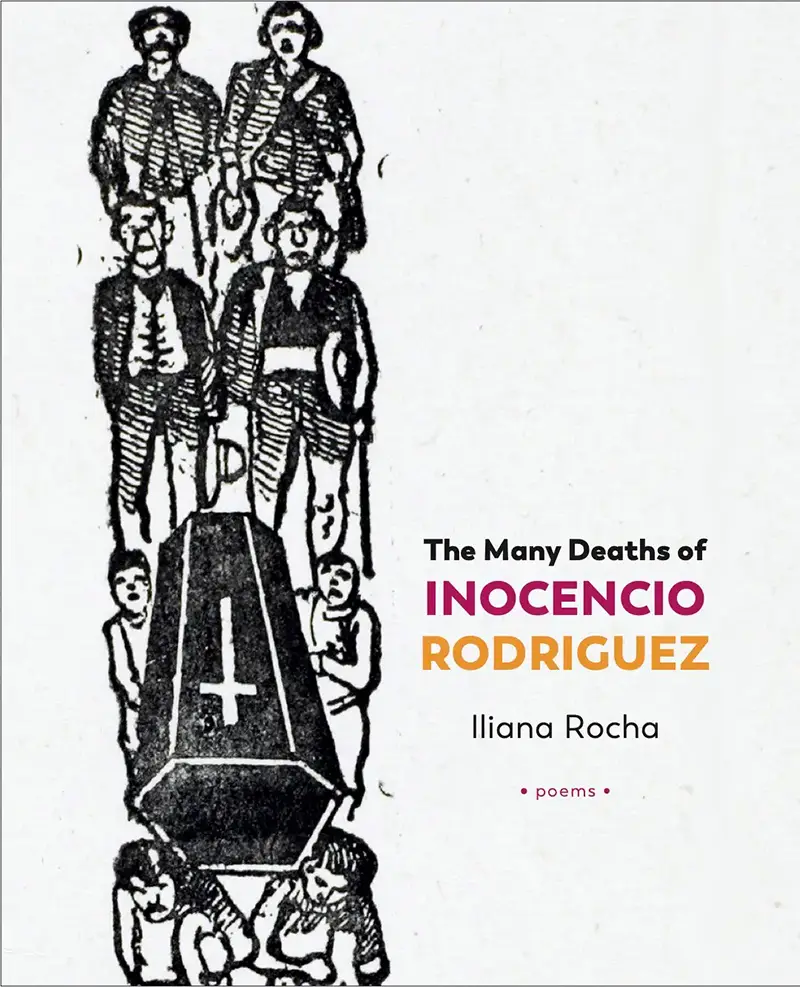Faculty Spotlight: Iliana Rocha, Poetic Justice for True Crime

Assistant Professor Iliana Rocha has been obsessed with true crime ever since she was a child.
“Every week I would want to skip ballet because it was on Wednesday nights,” she said. “And that’s the night Unsolved Mysteries was on.”
Rocha’s interest in the genre stems, in part, from an unsolved murder within her own family. Rocha’s grandfather, Inocencio Rodriguez, was shot to death in Detroit, Michigan, in 1971. Officially, her grandfather was shot and killed by a Detroit police officer, but little is known about what really happened or why.
The Many Deaths of Inocencio Rodriguez (2022), Rocha’s second book, re-examines her grandfather’s death through poetry. She grew up hearing countless stories about the death of her grandfather, many of them contradictory.
“It was New Year’s, and he was shooting guns, and the Detroit police officer took him as a threat and shot him,” said Rocha. “Or, no, it was a bar fight. Or, no, it was a drug deal gone wrong. Or he owed money to a cartel. Or it was a jealous husband.”
Rocha wrote a poem for each of these many versions.
The collection’s focus on true crime gave Rocha an outlet for exploring another aspect of her interest in true crime: the fact that women, though not socialized to express violence, are so often the victims of it. Interspersed among poems about her grandfather are others about cases of missing women.
Rocha believes that the process of writing the book ultimately changed her relationship to true crime.
“I can’t consume it in the same way I did,” she said. “Because when you watch so much of it, you start to recognize the entertainment value of it, and the way that narratives are constructed as to further generate enthusiasm, excitement, suspense, at the expense of the victim— most of whom are women.”
Women are particularly overrepresented when it comes to domestic violence, something Rocha has experienced personally.
“It’s consoling to be in a community with these women, but at the same time, I’m so angry that there’s nothing stopping these cycles of violence,” she said.
That’s among the reasons why domestic violence, including familicide, will be the subject of Rocha’s third poetry collection, currently in progress. Since COVID, her home state of Texas has seen an explosion of such violence, and Rocha plans to examine how it has specifically affected the Latinx community there.
“Along with that comes an ethical responsibility, too,” she said. “What’s been on my mind lately is: How do I do justice to these women without it perpetuating the same cycles of victimization?”